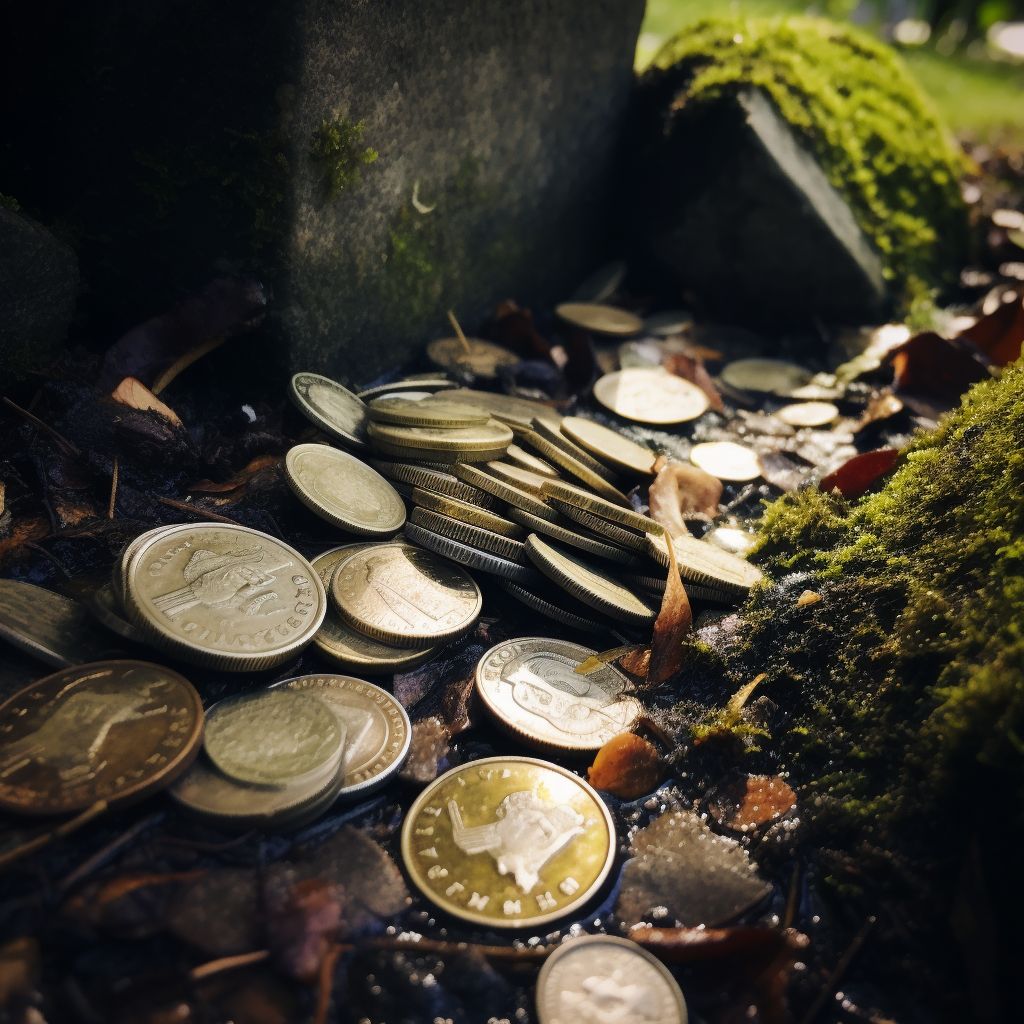
4. Military Tradition:
Among military personnel, particularly in the United States, coins left on graves often signify a visit from a fellow soldier, member of the military, or a veteran. The type of coin left can also represent the visitor’s relationship with the fallen service member, with different denominations symbolizing different connections or ranks.
5. Superstition and Other Beliefs:
In some beliefs, leaving a coin at the grave is said to bring good luck or is thought to protect the visitor from spirits; in others, it is a way for the deceased to have means to leave the graveyard and visit old friends or partake in worldly pleasures.
6. Financial Support:
This is a more recent interpretation, where coins left on graves in cemeteries known to have financial difficulties are seen as a way to contribute to the maintenance and care of the gravesite.
While these are some interpretations, it is essential to understand that the meaning can vary greatly between cultures and individuals. The act of leaving a coin may be personal and subjective, with the intention known only to the person who left it.
What does leaving a penny, dime, nickel, or quarter mean?
Leaving coins near a gravestone is a common practice in many cultures and has various symbolic meanings. The specific meanings can vary, but here are some general interpretations:
Penny: Leaving a penny on a gravestone is often a way to pay respects to the deceased. It symbolizes a visit to the grave and is sometimes seen as a gesture to indicate that the person who left the penny remembers the deceased and is acknowledging their presence.
Dime: A dime left on a gravestone can symbolize different things depending on the tradition or belief. In some cases, it may indicate that the visitor served in the same military unit as the deceased, as dimes are associated with military service. In other cases, it may simply be a way to show respect and honor the person who has passed away.
Nickel: Leaving a nickel can symbolize a deeper connection or friendship with the deceased. It’s often seen as a more substantial offering than a penny and can signify that the visitor had a close bond with the person buried in that grave.
Quarter: A quarter left at a gravestone can carry a few different meanings. Some interpret it as a sign of respect and remembrance, similar to leaving a penny. Others associate it with a strong connection or deep gratitude toward the deceased. In some cultures, it may also be a way to signify that the visitor was present at the time of the burial.
Different Practices Around the World
Diverse customs can be seen worldwide when it comes to this tradition:
1. Jewish Tradition:
In Judaism, it is common to leave stones or pebbles on a grave, a practice that signifies the presence of visitors and serves as a way to take part in the mitzvah of burial. While not a tradition involving coins specifically, this act parallels the theme of leaving a tangible sign of remembrance.
2. European Traditions:
In Europe, you can find variations of the coin tradition, with different meanings attached in each country, from acts of respect to folk beliefs about the afterlife and spirits.
3. Asian Customs:
Asian cultures have their own distinct practices involving the interplay between the living and the deceased, often focusing
